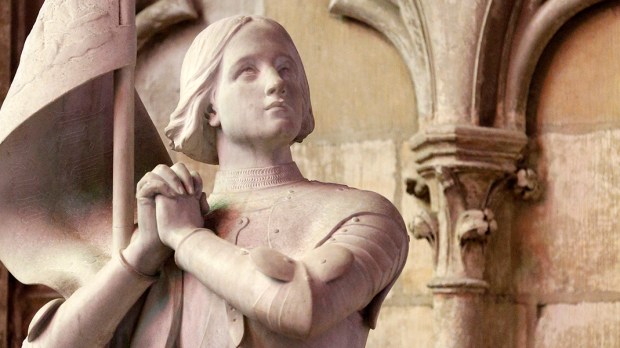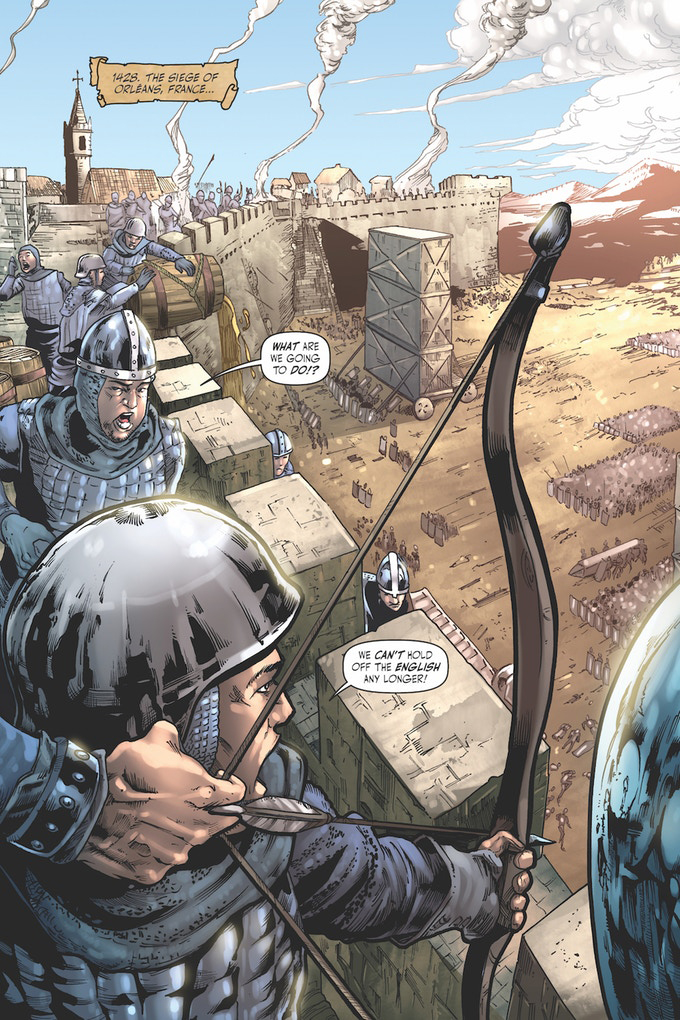This year marks the centennial of St. Joan of Arc’s canonization. It’s an opportunity to benefit from the wisdom of the young woman who, according to Mark Twain, is “easily and by far the most extraordinary person the human race has ever produced.”
Interestingly, some would say that Joan of Arc is “the best personal coach of modern times.” Those are the words of Alexandre Havard, founder of the Virtuous Leadership Institute and a great admirer of Joan of Arc, who says that the heroine of Orleans “communicates to us the beauty and greatness of the human being. She arouses in us a thirst for life, for enterprise and for sacrifice.”
He himself had a personal experience of Joan of Arc’s “coaching” some 20 years ago. While he was practicing as a lawyer in Finland, Jeanne’s face, “resplendent with light and purity,” appeared to him one night and whispered to him, in English, “Let’s go!”
“It was a grace that invited me to give up my profession as a lawyer to devote myself to teaching virtuous leadership throughout the world,” says Alexandre Havard in the first pages of his excellent little book, “Coaché par Jeanne d’Arc” (“Coached by Joan of Arc,” not yet translated into English) published in early November. Convinced of the greatness and modernity of the figure of Joan of Arc, he set out to study various episodes in her life and to present them as models applicable to contemporary daily life. Let’s look at three pearls of wisdom among the 15 Havard offers in the book.
1Do not fear failure

In spite of a heroic life, Joan knew what it was like to fail. Her most striking “failure” was that of having been burned alive in Rouen, while the English had not yet been cut off outside France. She may have died with the feeling of an unfinished mission. And yet, what looked like a failure to the world was a victory in the eyes of God. Alexandre Havard imagines his heroine saying, “It is thanks to my martyrdom that my mission was completed. At the very hour of my ordeal, the English began to doubt their victory.”
Galvanized by her fortitude and courage, her soldiers completed her mission—no longer with her, but for her. Likewise, her trial, so scrupulously recorded, dated and sealed, became in the end an account that contributed to her glory, thanks to which the whole world learned of her life. “Where you see a failure, God sees a victory,” even if the meaning is not immediately apparent, Havard emphasizes.
He proposes a practical exercise that can help us understand this better. He encourages us to identify three great failures of our lives and to detect, with hindsight, the victories that resulted from them.
2Develop your magnanimity

“A magnanimous person wants to do great things, but above all he wants to be great,” wrote Alexandre Havard on another occasion, referring to Martin Luther King. How can we be great? Here again, St. Joan of Arc leads the way. Becoming truly great requires discovering greatness in the little ordinary things, as Joan did during her simple life as a shepherdess.
It also requires allowing oneself to be touched by beauty, goodness, and virtue, and to practice contemplation before taking action. Magnanimity, according to Alexandre Havard, is acquired through the effort of living ordinary daily life well. Every day, Joan went to Mass, and knelt at the hour of Compline. He writes, “It is regularity, and not the emotion of the moment, that forges character and educates the heart.”

Read more:
5 Ways Joan of Arc was as tough as any action hero
Finally, developing one’s greatness of soul demands not missing the opportunity to act. Joan stood firm in convincing Robert de Baudricourt to bring her before the king. “It is necessary for me to be in front of the king,” she declared to Jean de Metz, “because he has no other help but from me.” In the same way, Alexandre Harvard invites us to always act as if “there were no one to help but us.”
3Do not seek honors

“I never sought to be applauded. It was enough for me to know that God loved me. A person who has a deep sense of dignity does not need to be applauded,” Alexandre Havard has Joan say. We become better when we purify our intentions.
It’s about living not to be acclaimed but to accomplish God’s will. This is what St. Joan of Arc did, fully. She could legitimately have expected the French to try to have her freed when she was a prisoner of the English, but nothing was undertaken. “So don’t worry if those who should acclaim you, forget you or slander you. Just try to please God.”
Alexandre Havard’s other books are available in English here.

Read more:
How Joan of Arc’s spiritual life propelled her to martyrdom
If you’d like to learn more about St. Joan of Arc, or share her story with a young person in your life, you might like this new comic book series starring the heroic woman.


